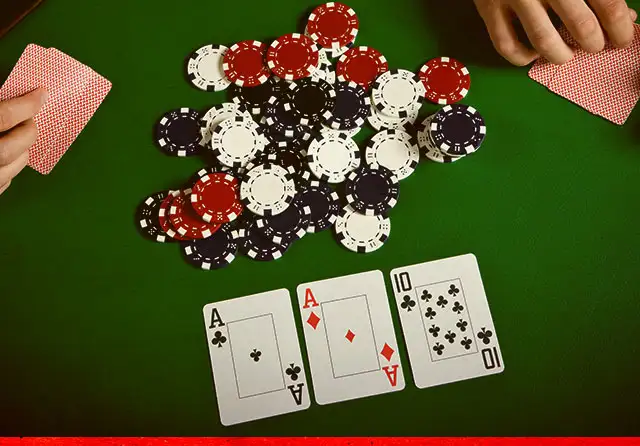
Limiting Risk
April 15, 2024
MLB Same Game Parlay Picks, Odds & Predictions – Wednesday, April 17
April 15, 2024Poker tournaments require a special set of preparations if you want to win because they’re a test of skill, strategy, and endurance. In poker, it’s more important to play your cards well than the hand you’re dealt. Poker tournaments are a big deal, whether you play in person or online. Regardless of your experience level or level of inexperience, you must mentally, physically, and spiritually prepare for entering the tournament scene. Let’s discuss how to prepare for a poker tournament, including tactics to use, maintaining your mental well-being prior to, during, and following competition, and useful considerations.
Comprehending the tournament’s framework is essential to your readiness. Your strategic decisions are anchored by the event’s blind structure, initial chip stack, and overall agenda.
Start by carefully reviewing the tournament rules. If available, look over historical data from prior tournament iterations to identify trends in chip distribution and blind increases. Examining historical competition results can yield important information about the most effective tactics at various phases.
When you know the rhythm of the tournament, you can predict blind raises, schedule your thrills appropriately, and know when to stockpile chips and when to hold onto them.
To obtain the upper hand, you should also research your rivals. Although player-tracking software and online databases can yield useful statistics, additional layers of information can be obtained by observing live games and taking notes throughout the early stages of the tournament.
Examine the ways in which rivals react to various circumstances, their favored betting strategies, and their responses to pressure. Top players are able to modify their tactics according on their opponents’ patterns.
Play Poker Tournaments Right Now at Caesars.
Understand the Game
A firm foundation in the principles of poker is essential. Ensure that you understand implied odds, pot odds, and hand rankings. Many accomplished players credit their success to having a solid grasp of these core ideas.
In his book “Super/System,” poker pro Doyle Brunson stressed the value of grasping the fundamentals and applying them as a basis for more complex tactics. Acknowledge the importance of position at the table and comprehend how it influences the hand you choose to start with.
Observe Your Financial, Mental, and Physical Well-Being
It is impossible to discuss gambling without mentioning all three. An essential component of getting ready for a tournament is managing your bankroll. Establish a budget for the competition and follow it scrupulously.
In order to manage your bankroll effectively, you must both create a budget and be aware of the inherent variance in poker tournaments. Set aside some of your bankroll for tournament play, keeping in mind that even experienced players can go through prolonged streaks of terrible luck.
The other side of the coin is preparation, both mental and physical. Although it’s frequently disregarded, it can have a big impact on your performance. Before playing poker, you should be well-rested; a restful night’s sleep improves focus and concentration.
Drink plenty of water and eat a healthy meal to keep your energy levels up during the event. To reduce stress and keep your cool under pressure, try adding relaxation methods like deep breathing exercises or meditation to your daily routine.
In poker tournaments, patience is a valuable asset. Deep stacks and a more leisurely pace define the early phases. Use caution and stay away from needless dangers that can endanger your tournament life. Choose your hands carefully, keeping in mind that when blinds rise and the action gets more intense, patience becomes a crucial advantage.
An often-ignored ability that can mean the difference between success and failure is managing tilt. Emotional annoyance, or tilt, can impair judgment and cause rash judgments. Have coping mechanisms in place and become aware of the symptoms of tilt.
Taking breaks when necessary can help you refocus and ensure that you approach each task with poise and clarity. There are important lessons to be learned from examining the personal narratives of winning poker networks that were overcome by tilt. Mike Matusow’s notorious “blow-ups” in high-profile tournaments are cautionary tales that emphasize the value of emotional restraint in poker.
Stay Current with Emerging Trends and Technologies
It takes constant effort to keep up with the newest poker trends and methods. The poker world is always changing, so staying up to date on industry advancements might provide you a competitive advantage.
See or read about previous competitions to hone your own strategy by taking note of the expertise of more seasoned participants. To keep up with new tactics and changing metagame trends, read respected poker forums, blogs, and social media accounts. Gamers are better able to make the right choices at the table when they keep up with the game’s changing dynamics.
Furthermore, technical factors should not be undervalued. All of your gaming accessories, like as cards and chips, must be in top shape. Get acquainted with the platform or software for the tournament you’ll be playing on to minimize unneeded distractions.
A flawless technical setup lets you concentrate fully on the current game. Examples of technical errors in the past that had serious repercussions highlight how important it is to plan ahead. One of the main justifications for the necessity of a dependable technical setup is the frequency with which players lose connectivity or encounter software bugs at crucial times.
Practice to Develop Strategies and Skills
Simulations and mock competitions are two more excellent ways to get ready for the competition. If you want to practice your live strategy and obtain real-world experience, think about taking part in lesser buy-in events.
Utilize traditional poker simulation software to imitate tournament conditions, giving you the opportunity to practice adjusting to various stack sizes, blind levels, and player interactions. Proficient players frequently exhibit a pattern of rigorous practice, which includes playing in simulated tournaments to hone their skills and improve their ability to make decisions.
You also need to be flexible. Be ready to modify your plan of action in response to the tournament’s shifting dynamics. Keep your eyes on the changing table conditions and know when to adjust the tension or release in your play.
In poker tournaments, memorable moments frequently feature players who made crucial decisions to take advantage of shifting conditions. What sets great players apart is their ability to read the table, recognize player tendencies, and modify their strategy accordingly.
It takes more than one step to get ready for a poker tournament. It is all-encompassing since it incorporates practical factors, mental toughness, and strategic aptitude. In order to succeed in the tournament setting, a thorough strategy is needed.
Creating a strategy, learning hand ranges and position dynamics, and exercising patience are all essential. Winning those new poker championships requires a combination of technical setup, staying updated, participating in practice tournaments, and developing adaptability.
You significantly raise your chances of not only playing in but also succeeding in the amazing world of poker tournaments by embracing each and every one of these elements. I hope the deck always stacks in your favor!
Play Poker Tournaments Right Now at Caesars.




